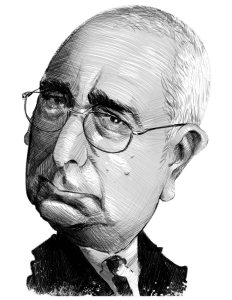Harsh criticism has been leveled against special counsel Jack Smith in response to his recent indictment of former President Donald Trump in the District of Columbia for his actions on Jan. 6, 2021. Three of the four counts are for criminal conspiracies — the same sorts of charges leveled against President Richard Nixon’s associates in the Watergate scandal some 50 years ago.
READ MORE: Trump’s Inferno: Part Two
I served as deputy counsel on Nixon’s Watergate defense team and became familiar with the conspiracy laws as a result. A comprehensive academic analysis, titled Prosecution and Defense of Criminal Conspiracy Laws by William & Mary law professor Paul Marcus, was published in 1978. It traces the laws’ origins in English Common Law from the 1200s forward and comments on its uses in the 1970s. I confess I haven’t kept up since then, but I very much doubt much has changed in the intervening 50 years.
The Problems With Conspiracy Laws
Several of Marcus' points stand out, even today. He suggests that initial prosecutions were based on two theories: (i) It was more dangerous for two or more people to embark on a criminal enterprise than just one; (ii) the government need not have to wait for a criminal enterprise to come to fruition before it could step in and punish the intended wrongdoing. Later, statutes added a requirement that some conspiracy members — not necessarily the defendants — had to have taken an “overt act” in furtherance of the conspiracy. That act, however, need not be criminal in and of itself.
Several other elements evolved in the development of these laws. First, there need not be an actual agreement in furtherance of the conspiracy. Juries could infer one in response to actions by the alleged conspirators. In other words, the law of conspiracy became a “thought crime.” It was dependent not so much on what you were alleged to have done as it was on what the jury could conclude you were thinking when you did it. “Intent,” then, became the cent...
No hoodwinking or hornswoggling here.
Support independent journalism and get unlimited access to quality commentary.
Already a subscriber? Login here





















